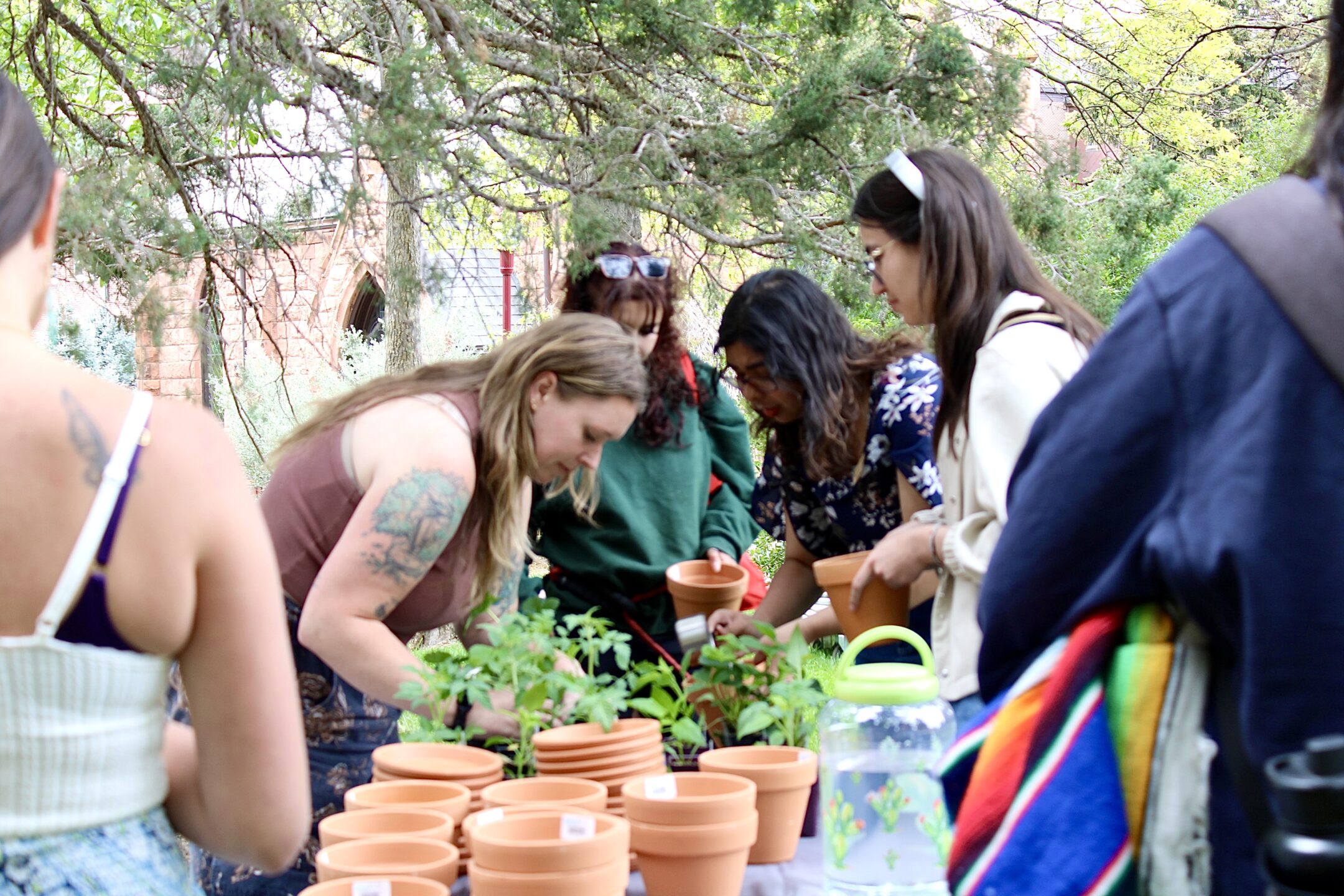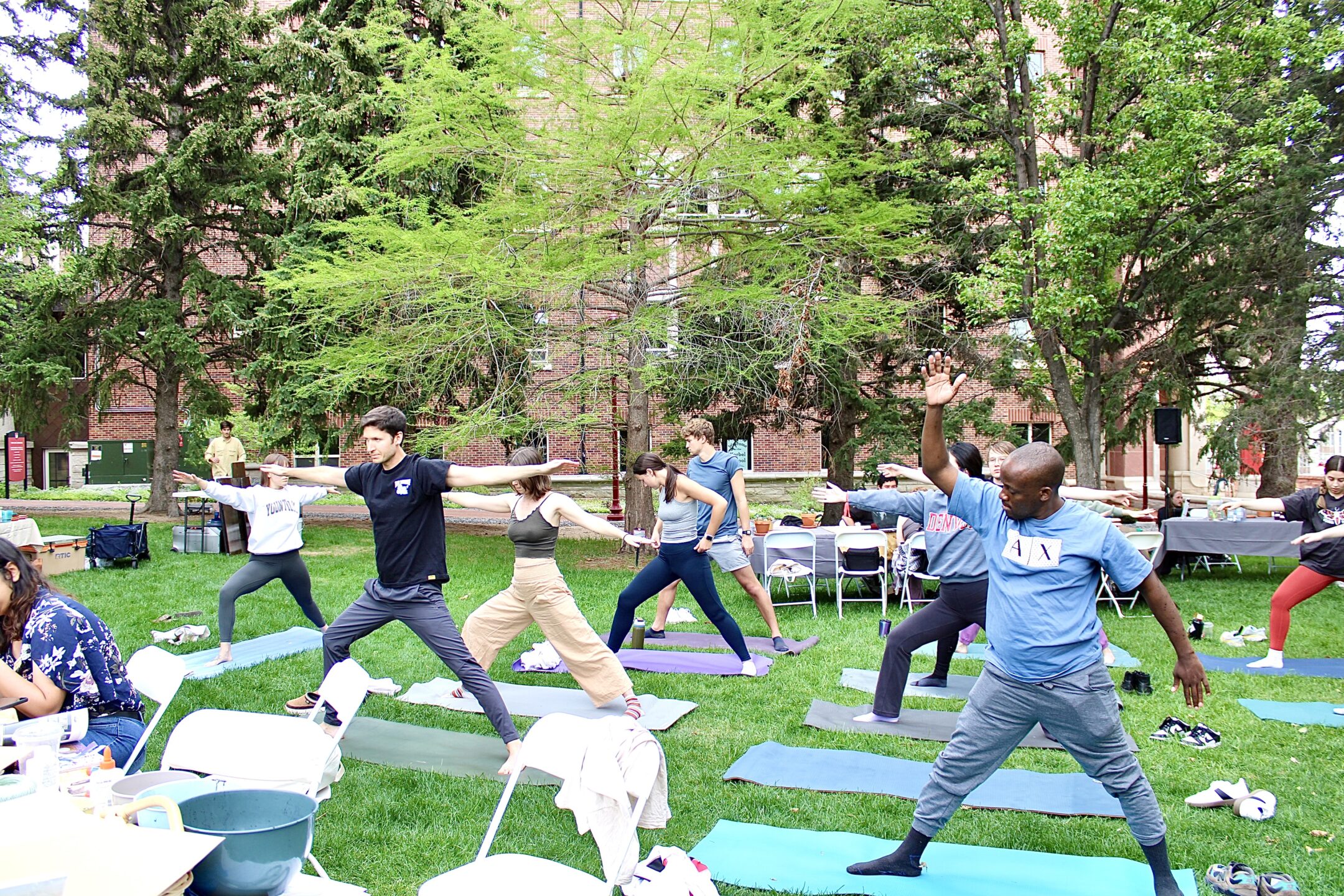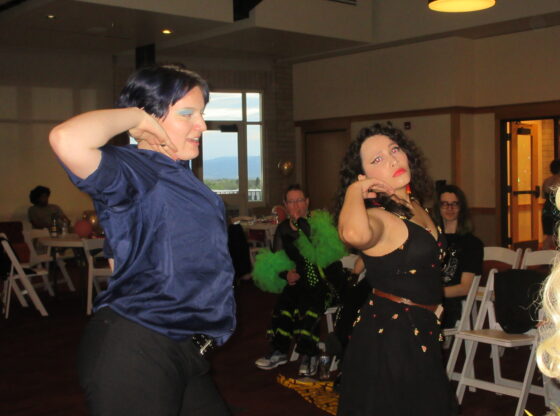Last weekend, the eco-community gathered to celebrate, learn from and connect to nature in a variety of ways both on and off campus.
The Graduate School of Social Work’s (GSSW) Eco Conscious Club and DU’s Climate Conscious Core (CCC) collaborated to put on the second annual Eco-Connection retreat. Last year, the retreat was held overnight at the YMCA of the Rockies in Estes Park. Due to issues with overnight contracts, the clubs could not return to the camp, but instead brought the eco-retreat to campus.
According to Cait McHale, vice president of CCC, the hope was to reach more students and “be able to create a general gathering place for people who are in the eco climate environment space to relax, unwind and get grounded.”
With two days full of hands-on, eco-based activities, they were able to pull it off.
Day one started off strong with a coffee cart from Magic Bar Coffee and a free nacho bar provided by Illegal Pete’s. Participants mingled and chatted over food and drink as the first round of activities kicked off the weekend.
Co-lead Maya Branch led a virtual herbalism workshop, informing students on different medicinal herbs and how they best serve your mind, body and soul. She started with a brief history lesson, discussing the roots of her learning experience with herbalism and then detailed four different herbs used for a variety of purposes. Participants left with a pocket full of herbs and a greater understanding of the practice.

Simultaneously, participants were encouraged to engage in an on-campus eco scavenger hunt in order to discover the different aspects of nature we may or may not realize are right under our noses.
“I hope students realize that there are all these beautiful ecosystems right here on DU’s campus, if you just pay a little more attention,” said Rachel Eriksen, Co-lead of GSSW’s Eco Conscious Club. “When I’m on campus, I’m walking around trying to get from class to class, and I’m not always taking the moment to realize the nature that we have right here.”
The morning was also filled with arts and crafts, where participants gathered around a table to paint, draw, write and dye thrifted bags and shirts with indigo.
These activities were followed by a Plant-Based Food Seminar with Amy Wozny, founder of Plant Test Kitchen, along with herb planting.

Eco-distress is a real feeling for those involved in the climate justice community. The leaders wanted to validate those emotions while simultaneously holding space for the desire to find joy in nature. The goal is to cultivate a space where students can “celebrate both experiences at the same time in community with others where it feels safer,” according to McHale.
With this in mind, the day of eco-community wrapped up with a group meditation, a discussion with the Latin American Indigenous Association (LAISA) and a grounding yoga and Qi Gong session led by Hannah Kasper from Rise Yoga. They wrapped up the night with a vegan dinner from V-Revolution.
Day two featured a hike at Red Rocks Park, in order to give students and members of the eco-community to connect with nature, hands-on.
McHale explained that CCC does a quarterly hike with the dean of the Josef Korbel School of International Studies, alongside professors, students and peers. They adopted this idea so that the community could come together and experience nature, hands-on. The hike was followed by a picnic, which featured empanadas from Maria Empanadas and a vegan sandwich option.
“The reason we chose a trail at Red Rocks is because we wanted to have somewhere that’s accessible to everyone,” said Eriksen.

As the second annual Eco-Connection retreat concluded, participants departed with strengthened bonds to both nature and fellow eco-minded students across DU’s various environmental communities. “I hope that students feel more connected to the more-than-human world,” reflected Eriksen. “You don’t always have to go to the mountains to get that connection to nature.”
Despite shifting from last year’s overnight format to a campus-based event, the weekend successfully fulfilled its mission of bringing together undergraduate and graduate students to learn, connect and find community in their shared environmental passion.
A previous version of this article incorrectly stated that the Graduate School of Social Work hosts a quarterly hike. In fact, the Josef Korbel School of International Studies organizes the quarterly hike. This has been corrected in the online version as of May 22 at 3:40 p.m.











